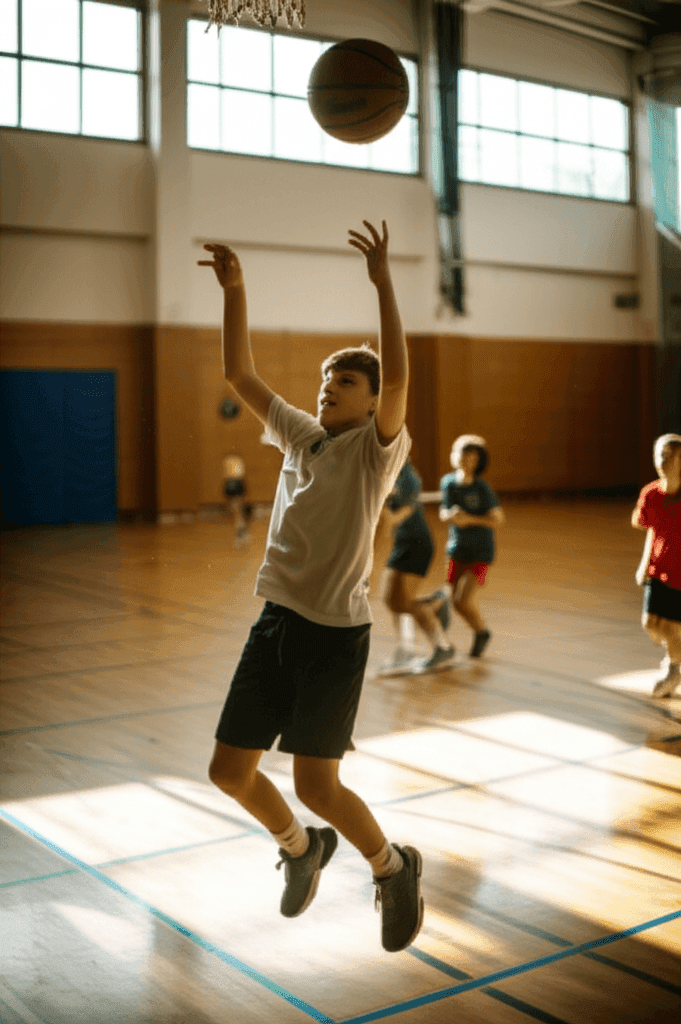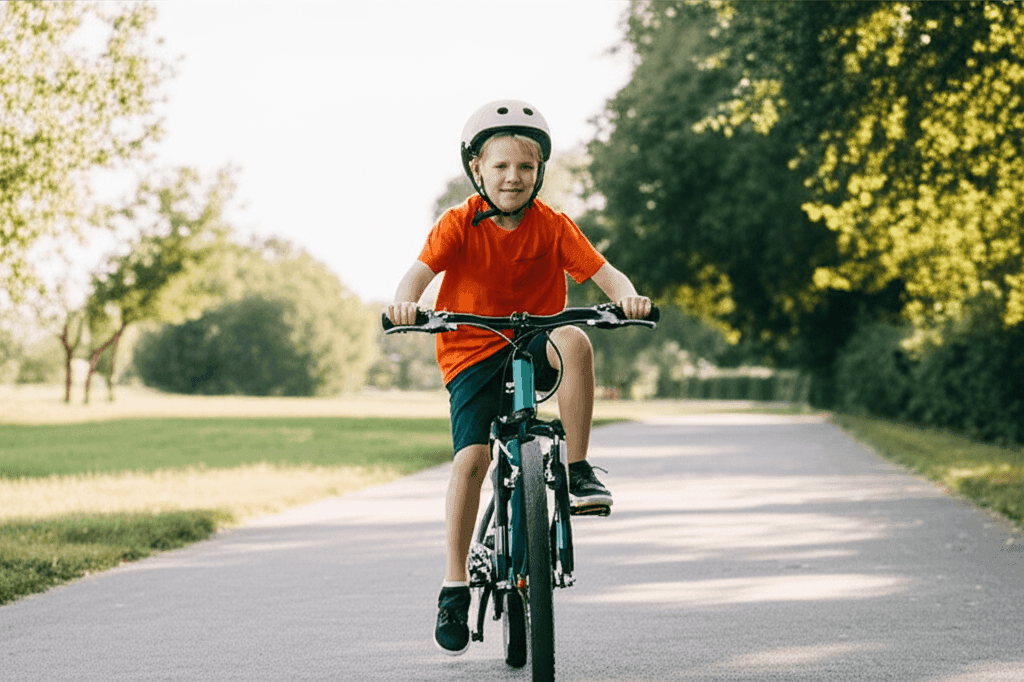Emerging research provides compelling evidence that regular physical activity is profoundly linked to better mental health outcomes in children and adolescents. Studies across large cohorts reveal that active lifestyles can significantly reduce the risk and severity of various mental health conditions, underscoring the critical role of exercise in child development and well-being.

The Growing Concern for Child Mental Health
The global prevalence of mental health issues among children and teenagers has seen a dramatic increase in recent years, with a heightened vulnerability to stress identified as a contributing factor. Approximately 10-20% of children and adolescents experience mental health disorders, with about half of these conditions manifesting by age 14. This rising trend underscores an urgent need for effective preventative and interventional strategies.

Key Findings from Recent Studies
Several recent studies offer robust insights into the protective effects of physical activity on young minds:
Longitudinal Swedish Birth Cohort Study
A significant study published in the British Journal of Sports Medicine followed 16,365 children from birth up to the age of 18 as part of the ABIS Study (All Babies in Southeast Sweden). Parents reported on their children’s physical activity levels at ages 5, 8, and 11, while mental health diagnoses were obtained from a national registry.
- Decreased Risk of Mental Disorders: The study found that the daily amount of physical activity at age 11 was associated with a 12% lower risk of being diagnosed with any mental disorder before the age of 18 for each additional physically active hour.
- Organized Sports Benefits: Participation in organized sports was linked to a 14% lower risk of anxiety among girls and a 21% lower risk among boys. It was also associated with a 41% lower risk of addiction among girls and a 30% lower risk among boys.
- Sex Differences: The research indicated clear sex differences in the protective effects observed, depending on the specific condition. For instance, the risk of depression among girls was 18% lower, but 29% lower among boys at age 11. The effects seemed to begin earlier in boys.
- Critical Window: Researchers suggest that the period just before and during early puberty (ages 10-12) might be a critical window where physical activity is key to developing resilience and hardiness.
Taiwan Nationwide Study on 1.9 Million Children
One of the largest studies of its kind, involving 1.9 million children and teens in Taiwan, analyzed data from the Taiwan National Student Fitness Tests and National Health Insurance Research Databases. Published in JAMA Pediatrics, this study established a strong link between physical fitness and reduced risk of mental disorders.
- Dose-Dependent Relationship: The study consistently demonstrated a dose-dependent relationship, meaning that higher levels of fitness correlated with a lower risk of developing mental disorders.
- Cardiorespiratory Fitness (CRF): CRF showed the strongest impact. A 30-second improvement in an 800-meter run test correlated with significantly lower risks of anxiety, depression, and ADHD.
- Muscular Endurance: Measured through bent-leg curl-ups, a 5-rep increase per minute was associated with lower depression and ADHD risks in girls, and lower anxiety and ADHD risks in boys.
- Muscular Power: Assessed by the standing broad jump, better muscular power was linked to reduced risks of anxiety and ADHD in girls, and anxiety, depression, and ADHD in boys.
- Independent of Socioeconomic Factors: The protective impact of fitness remained significant even after adjusting for income levels.
Comprehensive Evidence Reviews
Beyond individual studies, comprehensive reviews and meta-analyses further solidify the connection:
- Sport England Report: An independent evidence review, commissioned by Sport England and produced by Edge Hill University, collated research from 143 studies. This report concluded there is “strong and consistent evidence that sport and physical activity interventions had positive effects on the diagnosed mental health problems of children and young people”. Aerobic exercise showed a moderate effect on depression, while a combination of aerobic and resistance exercise had stronger effects.
- Systematic Review and Meta-Analysis (2025): A systematic review and meta-analysis published in April 2025, which analyzed 30 studies, found that physical activity interventions were significantly more effective in improving overall mental health, particularly for stress reduction and social competence enhancement. This review also noted stronger effects for male adolescents and those at the secondary school level.

Mechanisms Behind the Mental Health Benefits
The connection between physical activity and mental well-being is multifaceted, involving both direct physiological and indirect psychosocial mechanisms:
Brain Health and Neurotransmitters
Exercise plays a crucial role in brain development and function. It enhances blood flow and oxygen delivery to the brain, improving concentration. Physical activity also boosts levels of mood-regulating neurotransmitters such as dopamine, serotonin, and norepinephrine, which are often linked to mood and focus. Additionally, exercise increases Brain-Derived Neurotrophic Factor (BDNF), a protein vital for brain health and neuroplasticity.
Stress Reduction and Resilience
Regular physical activity helps to reduce cortisol and other stress hormones. Long-term stress can be detrimental to the brain and increase the risk of mental health problems. Movement can equip children with better coping mechanisms for stress and contribute to building resilience.
Emotional Regulation and Self-Perception
Structured physical activity has been shown to improve emotional self-control. It can also enhance self-perception, identity, quality of life, confidence, and self-efficacy. Team-based sports, in particular, can lead to less anxiety and depression and foster a stronger sense of self.
Social Development and Competence
Participating in sports exposes children to diverse social interactions, broadening their social networks and improving social interaction among peers. Physical activity can enhance both behavioral and cognitive aspects of social competence, contributing to overall health.

Practical Implications and Recommendations
Given the compelling evidence, integrating regular physical activity into children’s daily lives is paramount for fostering better mental health.
Promote Organized Sports and Structured Activities
The research highlights the particular benefits of organized sports, which can provide structured activity, social interaction, and opportunities for skill development. Schools, communities, and parents should prioritize access to and participation in such programs.
Emphasize Cardiorespiratory Fitness
As cardiorespiratory fitness showed the strongest impact on mental health outcomes, activities that elevate heart rate, such as running, swimming, or cycling, should be encouraged.
Incorporate Diverse Forms of Physical Activity
Beyond aerobic exercise, incorporating activities that build muscular endurance and power, such as strength training or jumping, can offer additional mental health benefits.
Address Sedentary Behavior
Concerning trends in prolonged sedentary behavior, including excessive screen time, have been identified as counteracting the benefits of physical activity. Policies and programs should aim to raise awareness about screen time and promote active lifestyles.
Integrate Physical Activity into Educational Settings
Schools are a critical environment for promoting physical activity. Integrating engaging, movement-based activities into daily routines, and emphasizing the fun and social aspects of exercise can cultivate healthier lifestyle patterns. Physical education, school sports, and other physical activity programs are crucial tools for fostering healthier, happier, and more resilient children.
Conclusion
The growing body of research unequivocally demonstrates that exercise is a powerful and accessible tool for bolstering mental health in children. By prioritizing physical activity, especially during critical developmental windows, parents, educators, and policymakers can equip the next generation with enhanced resilience, improved emotional regulation, and a stronger foundation for lifelong well-being. Continued investment in and promotion of active lifestyles are essential steps in addressing the escalating global challenge of child mental ill-health.







